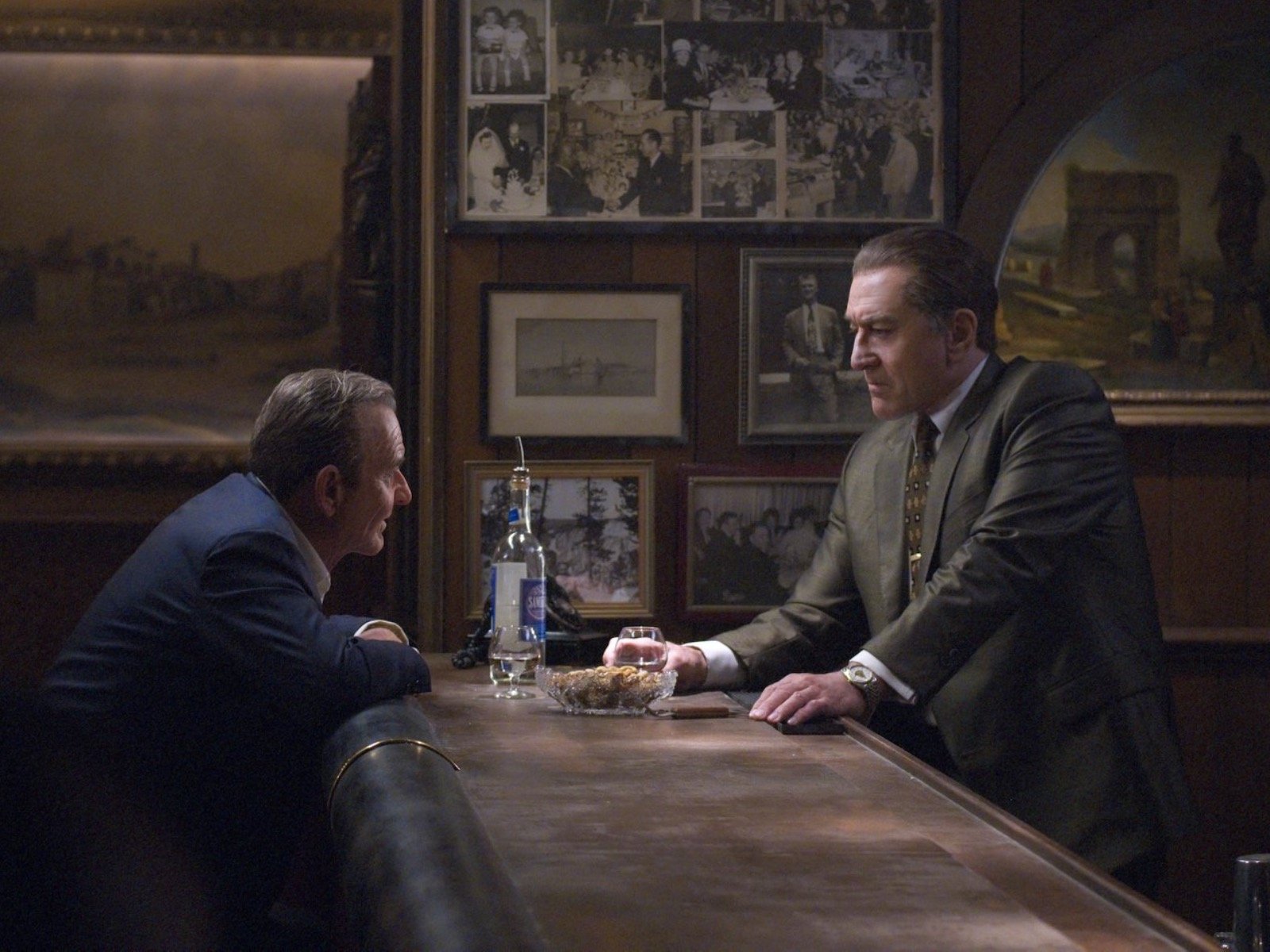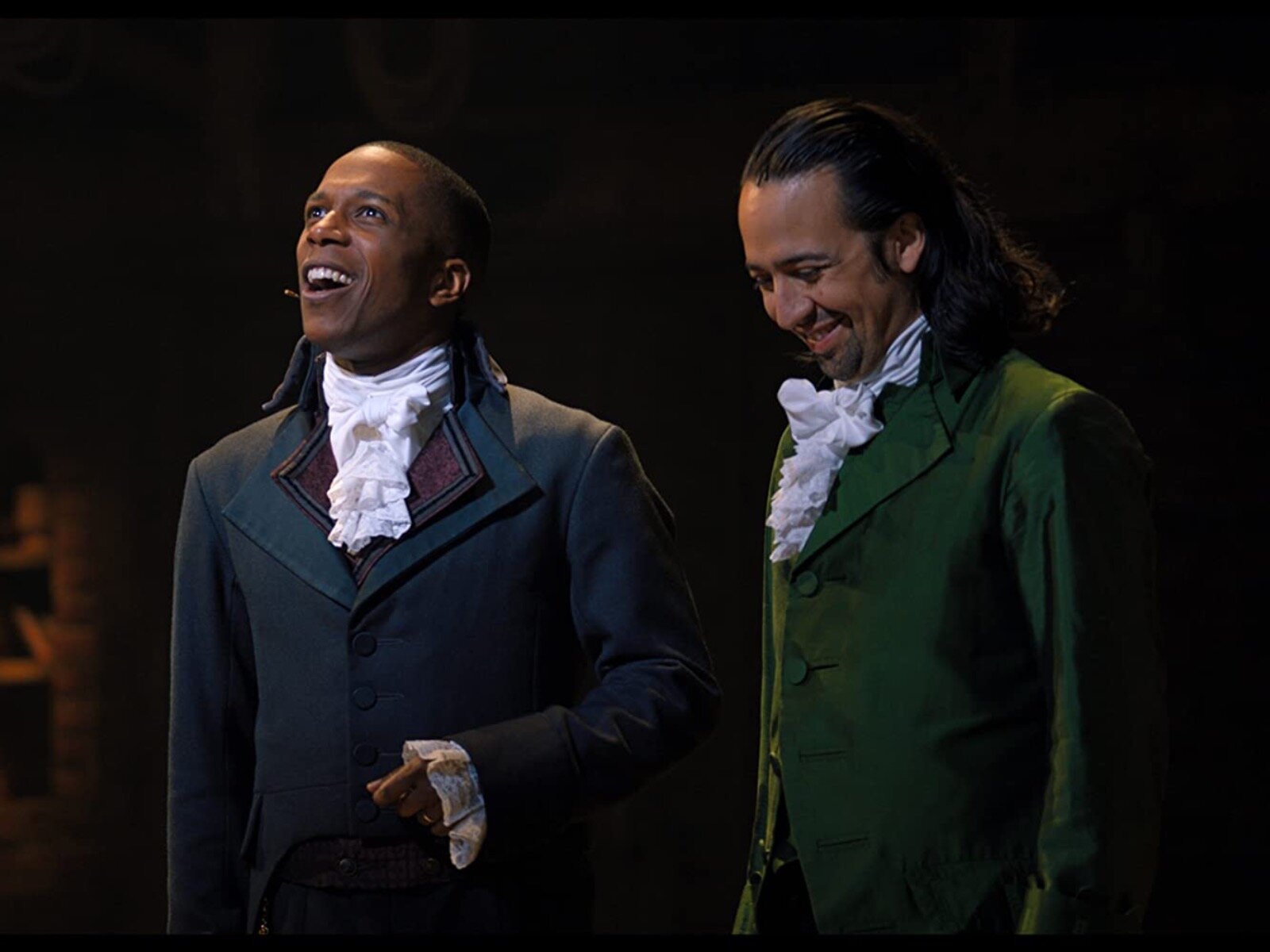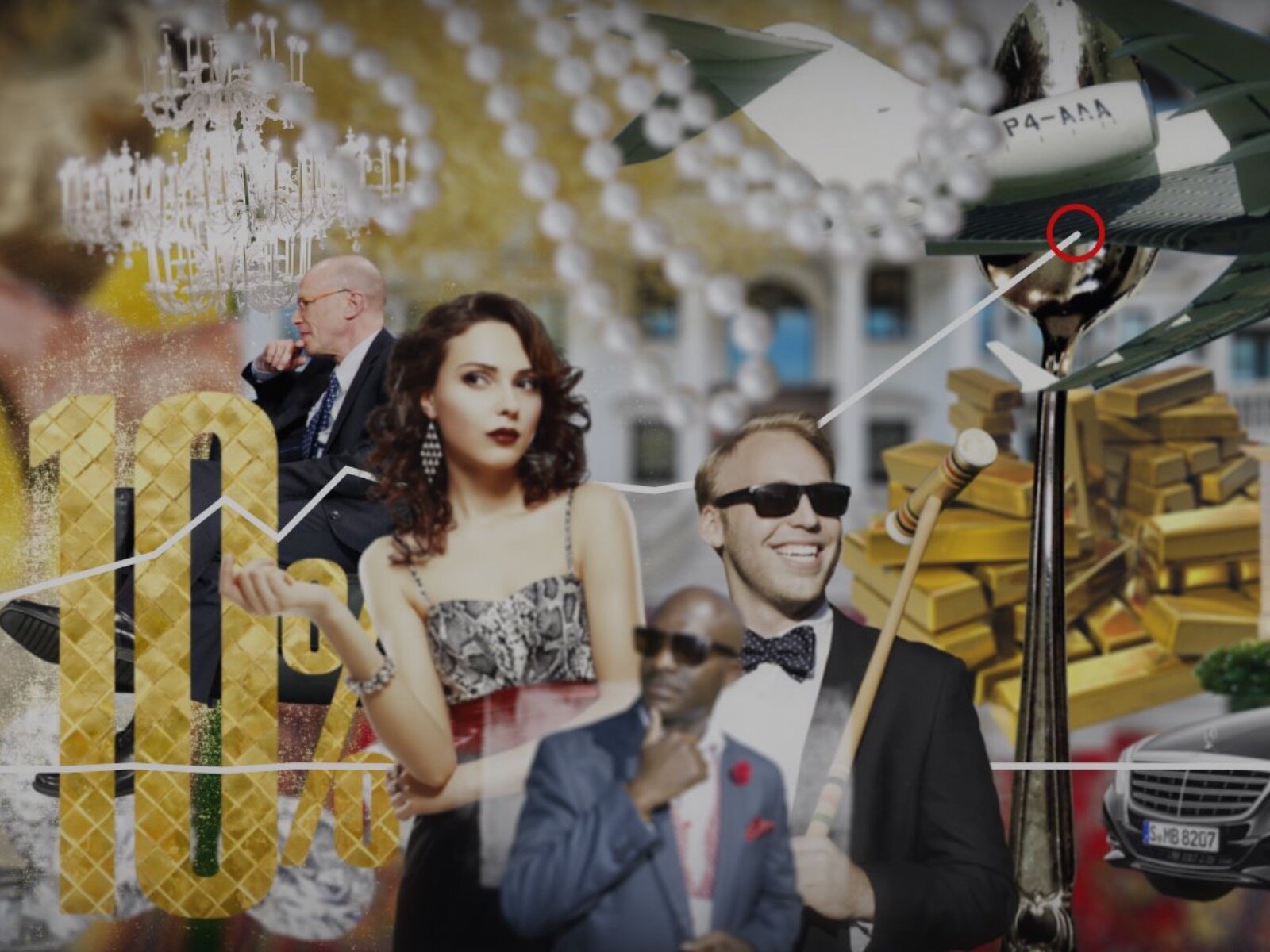Never say never – especially in a world where Martin Scorsese’s making movies with a small-screen streaming service – but after three and a half gripping, gorgeously assembled, gut-busting and, in the end, painfully gut-punching hours, it’s near impossible to imagine the iconic director having anything more to say about gangsters after "The Irishman."
Gathering a crew of collaborators old (Robert De Niro, an unretired Joe Pesci) and surprisingly new (Al Pacino), Scorsese’s crime epic – in the actual definition of the word – feels like one grand final statement on the genre he’s transformed and called home, an entertaining eulogy that instead stunningly turns into an execution by the final credits, putting this world of cold, empty shell casings and even colder, emptier men to bed not with a bullet but something even more brutal and lethal: a dying man sitting alone in an empty room.
The lonely, dusty old man is Frank Sheeran (De Niro), a white-haired senior sitting in a wheelchair regaling his only audience – the viewers – with stories of how he went from a Philly truck driver to the ultimate heavy for the Bufalino crime family and their various business ventures of, uh, dubious legality. From stealing slabs of steak to eventually performing hits, he becomes the right hand man to two friends and masters: mob king Russell Bufalino (Pesci) and infamous Teamster union president – and even more infamous disappeared mob casualty – Jimmy Hoffa, played by Pacino, somehow the most brilliantly explosive part of a movie filled with bombed cars going up into fireballs.
The first half of "The Irishman" is classic familiar Scorsese, taking the audience happily by the hand deep into its criminal underworld. It’s a lot of detail, a lot of characters (many introduced with on-screen text pointing out their future grim demise) and a lot of one-off jobs of half-hearted motivation. It’s very entertaining, thrillingly crafted and textbook Scorsese – albeit for better and worse. Even if it's a fun but fairly standard rise-the-ranks crime story for its first third, few tell it with his level of visual verve.
Eventually Steve Zaillian’s screenplay – adapted from the novel, "I Heard You Paint Houses" the name Scorsese puts on the movie itself – digs its hooks into a particular angle: the tensely shifting Venn diagram of the mob, the union and the U.S. government. It’s still a sprawling, occasionally rambling and detail-dense trip through some convoluted, under-the-table union history as Sheeran sits in the middle of the wheelings and dealings, and even in the hands of masters keeping the pace a rush, the line readings and craft electric, by the two-hour mark, viewers might wonder what made this gangster story so important to utilize multiple cinematic legends and more than 200 minutes. (This might especially be the case for those watching at home on the movie’s native Netflix, feeling the runtime and the temptation to check a cell phone grow.)
Have patience, though – a fairly easy task, especially when the movie lights Pacino’s unpredictable fireworks show – because "The Irishman" quickly goes from good but standard to essential and great as Scorsese reveals his final game. Executing perhaps his finest cinematic rope-a-dope, Sheeran’s story becomes a compelling windup for a punishing final relentless barrage of punches to the soul – from a crucial hit to even just a phone call or a visit to the bank.
Even placed next to the obvious genre and structural brethren on Scorsese’s resume, "The Irishman" is a different, darker, wiser and even more wounded beast – a movie seemingly made precisely and very pointedly to correct those who misunderstand "Goodfellas." His ’90s gangster icon is a movie about highs and lows, an addiction and a comedown. "The Irishman" is about life and death – period. There’s nothing for our self-made myth at the end of Scorsese’s latest – just the realization that it was all a toxic men’s lie: gangster loyalty, the material success, the meaningful icons, the idea that death won’t somehow be final. No friends, family or even a priest. No redemption or remembrance. Not even egg noodles and ketchup.
During an early conversation with Bufalino, Sheeran flashes back to making German prisoners dig their own graves before executing them overseas in World War II, seemingly a brief aside in a movie always happy to detour. "Maybe they thought if they did a good enough job, the guy with the gun would change his mind," Sheeran theorizes, not realizing he’s described himself and his entire world – men digging their souls deeper and deeper into their graves, hoping that at the end the work will be worth it, that there will be some reward. But time and death never change their minds – and it cares as little as Sheeran did in war-torn Italy.
For all of the funny moments, the final result is a sad, regret-filled and conscience-probing story that needs the previous two hours, the weight of a life’s misdeeds, to hit as hard as it does – and needs Scorsese and his longtime editor Thelma Schoonmaker. Few are better at juggling tricky tones and emotions – all on display here, laughs and hurt often separated by just seconds – as well as bringing a thoughtful energy to camera movements, whether he’s thrillingly swooping into a courtroom, moving the audience’s attention or the story in a single motion, or even just smartly framing Sheeran’s once glimmering honorary ring and watch, dimmed gaudy décor on an old graying hand.
Even fewer are as good as taking the many elements of a Scorsese picture and making them as potent as Schoonmaker. Some might scoff at praising the editing on a 210-minute movie, but so much of what "The Irishman" accomplishes happens in the careful cuts – whether it’s knowing when to cut back and forth during a thrillingly tense Miami meeting or knowing when to hold on an actor’s face during a heartbreaking phone call or a probing child’s stare. When Hoffa’s wife is fired, thanks to some brilliant editing and story choices, a minor moment in Sheeran’s tale becomes one of the movie’s most intense, frightening sequences as well as a scathing indictment of these men’s lifestyle, without a word.
Another cut gives "The Irishman" one of its earliest wounding blows, snapping from Sheeran’s in-depth breakdown of the logistics of a cruel hit to Sheeran at the kitchen table with a family that we know nothing about. The audience learned in precise detail how to effectively kill a man in front of his family while they didn’t even know his daughter Peggy (Anna Paquin) was now an adult. With scenes like that, in Scorsese, Schoonmaker and Zaillian’s hands, what seems like just another mobster tale turns into something deeper, sadder and crushingly powerful.
The only significant misstep comes with one of the film’s most notable features: the de-aging technology. In De Niro's first scene as a young man, his tech-smothered face has a unnatural smooth sheen in the harsh sunlight that looks like he’s stepped out of "Welcome to Marwen," and while he looks younger, he still has the voice, facial structure and form of current day De Niro. It's distracting but also makes his age and the passage of time in this half-century-spanning tale tricky to track. Thankfully, as Sheeran grows up, the technology blends into his face more and more before becoming unnecessary in the final act.
When he’s not wearing essentially an odd digital mask, De Niro goes on to give one of his best performances in years – especially in the later acts when the weariness on his face carries so much emotional weight, rendering any dialogue unnecessary. Most of the bridge between the second and third act is wordless, following Sheeran on his cold orders, but his silent glances ache loudly, finally smothering his soul on a late phone call where he muster a complete word much less even opening his eyes. There’s no reason for the audience to tear up for an undeniable monster – one who still can’t muster to break with the loyalties and cope with the lies that ruined him – but thanks to De Niro’s work during his feeble late attempts to grapple with his corrupted soul and struggle to accept his death, those painful late realizations of old age hit hard.
Newly nudged out of retirement, Pesci – once cinema’s signature sparkplugs – instead reigns in this performance, operating as a silent and smoothly menacing presence. The audience never witnesses him commit any crime, just one blood-soaked aftermath, but just a few calm words during a kitchen cooking session carry chills.
On the complete other side of the spectrum, there’s Pacino as Hoffa, delivering his kind of vintage loud, electric yet still soulful performance that’s been too easily untamed into caricature. Here Pacino gives everything you love about the performer – both ends of the fuse, the burn and the bomb – with none of the unrestrained self-parody. A wild card getting too wild for the mob yet too convinced of his own power to realize it, there’s a reason why the movie shifts into a higher gear when Hoffa arrives on screen – much of it is Pacino, who shows up like an ice cream-loving thunderstorm howling about solidarity, simmering during tense meetings and getting so ulcer-inducingly enraged during one chewing-out that he can’t even muster the end of a sentence. The audience is never quite sure how Pacino will choose to end one of Hoffa’s line readings (well, you have a good idea it’ll end a certain rooster-inspired ten-letter insult) but they know they can’t miss it.
And then there’s Paquin, given few lines but the movie’s biggest role as Sheeran’s daughter Peggy, who gets a glimpse at her father’s dark career and darker soul as a child and never forgets it. Building off of Lucy Gallina’s wide-eyed, all-seeing child-actor work, Paquin’s few lines and highway-long stares cut to the bone each time.
It’s the accumulated weight of everything – the fun laughs big or barbed, the immaculate historic detail luxuriated in, the performances large or small – that makes "The Irishman" such a force by the time its title rolls. (Or two titles, apparently.) The leads may end up empty, lost men of war looking for a meaning or just anything in the deaths they’ve caused and the demise they now face, but the movie is full – of lively humor and performances, of thrilling moments, of impeccable craft and of haunted insights into the themes that Scorsese’s stalked throughout his entire work, now with the perspective of a long life and the skills of a long career to enrichen them.
So yes, "The Irishman" is a long movie – but it’s a story that feels like Scorsese’s been building an even longer time to tell. And if it is his final statement on the world of gangsters and on life, on bad men and growing old, it’s a jolting final verdict – so much so that anyone else who tries a gangster movie after this mammoth might want to consider fetching their shinebox instead.
"The Irishman": ***1/2 out of ****
As much as it is a gigantic cliché to say that one has always had a passion for film, Matt Mueller has always had a passion for film. Whether it was bringing in the latest movie reviews for his first grade show-and-tell or writing film reviews for the St. Norbert College Times as a high school student, Matt is way too obsessed with movies for his own good.
When he's not writing about the latest blockbuster or talking much too glowingly about "Piranha 3D," Matt can probably be found watching literally any sport (minus cricket) or working at - get this - a local movie theater. Or watching a movie. Yeah, he's probably watching a movie.







